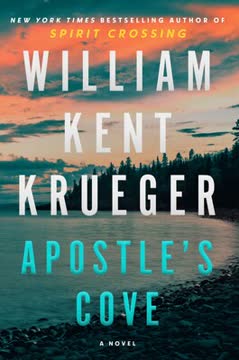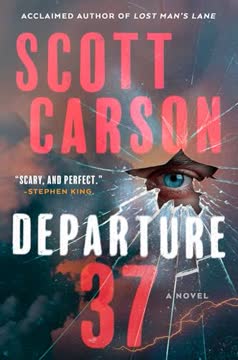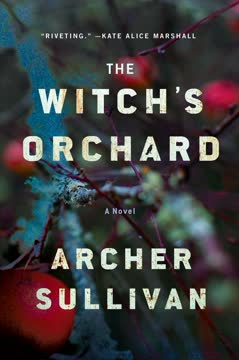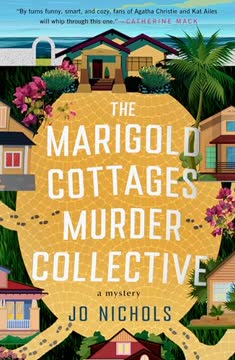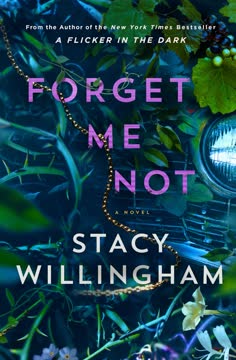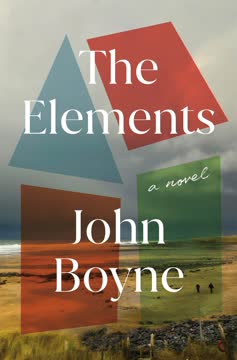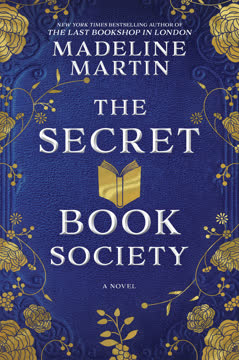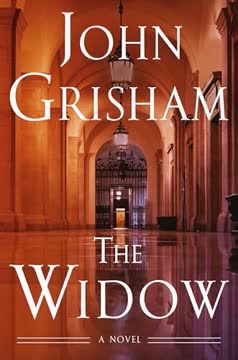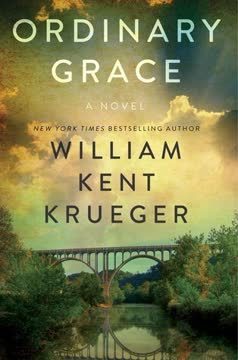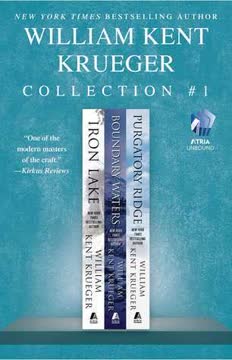Plot Summary
Autumn Shadows and Regrets
As autumn wanes in northern Minnesota, Cork O'Connor, former sheriff and part-time PI, sits alone in Sam's Place, his burger joint, feeling the weight of age and regret. Haunted by his father's legacy and his own aches, Cork is startled by a call from his son Stephen, now a law student. Stephen, working with the Innocence Project, believes Cork may have sent an innocent man—Axel Boshey—to prison for murder decades ago. The call reopens old wounds and sets Cork on a path to confront the ghosts of his past, both personal and professional, as the long shadows of autumn deepen around him.
Blood on Timber Lodge Floor
Twenty-five years earlier, Cork, newly elected sheriff, is called to a grisly scene at the Timber Lodge caretaker's cabin. Chastity Boshey lies dead, stabbed repeatedly, her mother Aphrodite in shock, and a toddler wailing in the next room. The evidence is chaotic: blood everywhere, a butcher knife, a fireplace poker, and footprints. Aphrodite, dazed and bloodstained, accuses Chastity's husband, Axel, of the murder. The small community reels as Cork begins his investigation, aware that every decision will ripple through families and the reservation, and that the truth may be more tangled than it first appears.
The Web of Family
Cork's investigation is immediately complicated by the dense web of relationships on the Iron Lake Ojibwe Reservation. Axel is a distant cousin, and Cork's own mixed heritage makes him both insider and outsider. As he questions Aphrodite and Chastity's family, he finds old resentments, secrets, and prejudices. The reservation's history of mistrust toward law enforcement, and the legacy of Cork's father, weigh heavily. The investigation is not just about evidence, but about navigating loyalties, cultural wounds, and the unspoken rules of family and community.
Reservation Walls and Secrets
Cork and his mentor, Sam Winter Moon, search for Axel on the reservation, encountering stonewalling and suspicion. Axel's mother, Patsy, is protective and evasive, and the community closes ranks. The North Star bar, a gathering place for Ojibwe men, yields only grudging information: Axel was drinking, called a woman, and left in distress. The reservation's code of patience and silence frustrates Cork, who senses that the truth is buried beneath layers of pain, pride, and old grievances. The investigation becomes a test of his identity and his ability to bridge two worlds.
The Spider at Shangri-La
Aphrodite McGill, Chastity's mother, is a force of nature—sensual, manipulative, and deeply wounded. Her home, Shangri-La, is infamous for its wild parties and tangled relationships. Cork learns that Aphrodite's influence extends over men and women alike, and that her relationship with Chastity was fraught with jealousy, rivalry, and possible abuse. The "spider" at the center of the web, Aphrodite's appetites and secrets have shaped the lives of everyone around her, including her daughter, her grandchildren, and the men who orbit her. The investigation circles ever closer to her.
The Drunk, the Dead, the Blame
Axel Boshey, found and arrested, is a broken man—plagued by alcoholism, blackouts, and self-loathing. Under questioning, he confesses, but his memory is fragmented and unreliable. He claims to have blacked out after a fight with Chastity, and cannot recall the murder. Bloody clothes are found, but the evidence is circumstantial. Axel's confession is full of holes, and his willingness to accept blame seems rooted in shame and a sense of inevitability. Cork is left doubting whether justice is being served, or if a scapegoat is being sacrificed to the community's need for closure.
The Mailbox Signal
As Cork digs deeper, he uncovers a subtle signal system: the mailbox flag at the Boshey cabin, used to indicate when the coast is clear for a secret lover. Chastity, it seems, was seeing someone behind Axel's back, and the identity of this lover becomes a central mystery. The mailbox, a mundane object, becomes a symbol of hidden desires and betrayals. The investigation shifts focus from Axel's drunken rage to the possibility of a crime of passion, jealousy, or revenge, and the list of suspects grows.
The Confession's Cracks
Years later, Stephen O'Connor's work with the Innocence Project brings new scrutiny to the case. DNA evidence, old phone records, and the testimony of those who were silenced or ignored begin to surface. Bernadette Polaski, the town librarian and Axel's secret lover, is revealed to have been with him the night of the murder. Her sudden departure from town, and the birth of a child, raise further questions. The cracks in Axel's confession widen, and Cork is forced to confront his own failures as an investigator and as a man.
The Children Left Behind
The children of the tragedy—Sunny (Sundown) and Moonbeam—grow up in the shadow of violence, secrets, and loss. Raised by their grandmother Patsy, they struggle with identity, shame, and the legacy of their parents' choices. Sunny becomes an academic, Moonbeam drifts into Aphrodite's orbit. The next generation's search for truth and healing becomes intertwined with Cork's quest for justice. The story becomes not just a whodunit, but a meditation on how trauma is passed down, and how hope and reconciliation might be possible.
The Windigo's Hunger
The Windigo, a spirit of hunger and destruction from Ojibwe legend, becomes a metaphor for the darkness at the heart of the community. As Halloween approaches, children sense its presence, and the adults are haunted by their own fears and guilt. The Windigo's hunger is not just for flesh, but for secrets, lies, and the pain that festers when truth is denied. The myth weaves through the narrative, reminding everyone that evil is both supernatural and all too human.
The Past Returns
Decades after the murder, Cork is drawn back into the case by Stephen, Sunny, and Marianne—Bernadette's daughter and Axel's child. The past refuses to stay buried: Aphrodite is murdered at a Halloween party, and suspicion falls on Moonbeam. A mysterious woman in a red fright wig is seen fleeing the scene. The community is once again thrown into chaos, and Cork must race to uncover the truth before more lives are destroyed. The sins of the past demand reckoning.
The Innocence Project
With the help of Stephen and the Innocence Project, Cork reopens the case, re-examining evidence, interviewing old witnesses, and confronting his own complicity. The investigation becomes a journey through memory, regret, and the search for redemption. DNA evidence, long-suppressed confessions, and the unraveling of alibis point to a far more complex web of guilt and innocence than anyone imagined. The line between victim and perpetrator blurs, and Cork is forced to ask what justice really means.
The Daughter's Search
Marianne Polaski, raised far from Aurora, discovers her true parentage after her mother's death. Her search for Axel, and for the truth about her mother's life and Chastity's death, brings new urgency to the case. Marianne's presence forces the community to confront the consequences of its secrets, and her bond with Sunny offers a glimmer of hope for healing. The story becomes as much about the children's need for answers as about the adults' need for absolution.
The Priest's Silence
Father Jude Monroe, once the parish priest, holds secrets from the confessional that could change everything. Bound by vows, he struggles with the burden of what he knows about Chastity, Aphrodite, and the Martinelli family. His own crisis of faith and eventual work with the homeless in Duluth mirror the community's struggle to find meaning and forgiveness. The silence of the priest becomes a symbol of all the truths left unspoken, and the cost of keeping them.
The Devil's Halloween
On Halloween night, Shangri-La becomes a stage for revelation and violence. Aphrodite, high and flamboyant, presides over a party filled with old lovers, enemies, and secrets. Moonbeam, angry and lost, is at her side. Cork and Jenny infiltrate the party in disguise, hoping to catch someone off guard. Amidst the chaos, a woman in a red fright wig lures Aphrodite onto the terrace, where she is stabbed to death. The partygoers' masks become metaphors for the lies everyone has worn for decades.
The Red Fright Wig
The investigation into Aphrodite's murder leads to a homeless woman known as Maggie, who is revealed to be Lucy Martinelli—long thought dead in a sanitarium fire. Lucy, traumatized by years of abuse and manipulation by her father Wild Bill and husband Rocky, confesses to killing Aphrodite in self-defense after being provoked. Her memories of Chastity's murder are fragmented, but under questioning, the truth emerges: she was not the killer, but a pawn in a larger scheme.
The Truth Unmasked
Rocky Martinelli, under pressure, confesses to his long affair with Chastity and to being present the night she died. The real killer was Aphrodite, who, in a drug-fueled rage, stabbed her own daughter after a violent confrontation. Wild Bill and Rocky covered up the crime, framing Axel with planted evidence. Lucy, manipulated and gaslit, believed herself guilty for years. The web of lies is finally unraveled, and the true nature of the community's wounds is laid bare.
Healing Fires at Crow Point
With the truth revealed, Axel is freed after decades in prison. The families gather at Crow Point, where the old healer Henry Meloux welcomes Axel into a new life of service and healing. The children—Sunny, Moonbeam, Marianne—begin to mend their relationships. Cork, burdened by guilt, finds some measure of peace in having finally done right by the people he loves. The fire at Crow Point becomes a symbol of hope, forgiveness, and the possibility of breaking the cycle of trauma. The Windigo's hunger is sated, and the community looks toward the future.
Characters
Cork O'Connor
Cork is a former sheriff and part-time PI, of mixed Irish and Ojibwe heritage, forever caught between two worlds. He is defined by his sense of duty, his deep regrets, and his struggle to live up to his father's legacy. Cork's relationships—with his wife Jo (deceased), his children, and the reservation community—are fraught with love, guilt, and the burden of history. Psychologically, Cork is driven by a need to make amends for past failures, especially the wrongful conviction of Axel Boshey. His journey is one of self-forgiveness, learning to listen to both the law and his heart, and ultimately, to seek healing for himself and his fractured community.
Axel Boshey
Axel is a man crushed by alcoholism, trauma, and the weight of being accused of a crime he cannot remember. His relationships—with Chastity, his children, and his mother Patsy—are marked by pain and longing. Axel's confession is less an admission of guilt than a surrender to shame and the community's expectations. In prison, he finds purpose as a healer and mentor, echoing the wisdom of Henry Meloux. Psychologically, Axel is a study in self-sacrifice, internalized racism, and the search for dignity. His eventual exoneration is bittersweet, as he must learn to live outside the walls that have defined him.
Aphrodite McGill
Aphrodite is the charismatic, manipulative matriarch at the center of the novel's web. Her sexuality, power, and history of abuse shape everyone around her. She is both victim and perpetrator—abused in her youth, she perpetuates cycles of exploitation and rivalry, especially with her daughter Chastity. Her relationships with men (and women) are transactional, and her influence is both magnetic and destructive. Psychologically, Aphrodite embodies the legacy of trauma, the hunger for love and control, and the dangers of unchecked desire. Her death is both a tragedy and a release for those ensnared by her.
Chastity Boshey
Chastity is the beautiful, volatile daughter of Aphrodite, caught between her mother's shadow and her own desires. Her relationships—with Axel, her secret lover Rocky, and her children—are marked by betrayal, anger, and longing for escape. Chastity's inability to break free from her mother's influence, and her own self-destructive choices, lead to her violent end. Psychologically, she is a product of generational trauma, torn between love and resentment, and ultimately undone by the very web she tries to escape.
Stephen O'Connor
Stephen, Cork's son, is a law student working with the Innocence Project. He is driven by a passion for justice and a desire to right the wrongs of the past, including his father's. His relationship with Cork is loving but challenging, as he pushes his father to confront uncomfortable truths. Psychologically, Stephen represents the hope of a new generation—willing to question authority, embrace complexity, and seek reconciliation.
Sunny (Sundown) Boshey
Sunny, Chastity's son, is raised by his grandmother Patsy after his parents' downfall. He becomes an academic, seeking to understand and heal the wounds of his family and community. His relationship with his sister Moonbeam and half-sister Marianne is central to the novel's theme of generational trauma and hope. Psychologically, Sunny is resilient, compassionate, and determined to break the cycle of silence and shame.
Moonbeam Boshey
Moonbeam, Chastity's daughter, is drawn into Aphrodite's orbit, seeking love and identity. Her relationship with her grandmother Patsy is strained, and she is haunted by the legacy of violence and secrecy. Accused of Aphrodite's murder, she becomes a symbol of the community's ongoing struggle with truth and forgiveness. Psychologically, Moonbeam is vulnerable, angry, and searching for belonging.
Bernadette Polaski
Bernadette, the town librarian, is Axel's secret lover and the mother of his child, Marianne. Her quiet strength masks deep loneliness and a longing for connection. Her sudden departure from town, and her silence about the night of the murder, are acts of self-preservation and love. Psychologically, Bernadette is defined by her capacity for sacrifice, her fear of scandal, and her hope for a better life for her daughter.
Wild Bill Gunderson
Wild Bill, former sheriff and father-in-law to Rocky, is a man of power, charm, and deep corruption. His history of abuse—of his daughter Lucy, of the law, and of the truth—casts a long shadow. He is complicit in the cover-up of Chastity's murder and the manipulation of Lucy. Psychologically, Wild Bill is a study in narcissism, entitlement, and the destructive legacy of unchecked authority.
Lucy Martinelli (Maggie/Magdalene)
Lucy, long thought dead, reemerges as Maggie, a homeless woman haunted by trauma and manipulated memories. Abused by her father and husband, she is gaslit into believing she killed Chastity. Her eventual act of violence against Aphrodite is both self-defense and a desperate attempt to reclaim agency. Psychologically, Lucy embodies the cost of generational abuse, the fragility of memory, and the longing for redemption.
Plot Devices
Dual Timelines and Generational Trauma
The novel's structure alternates between the original investigation and the present-day reopening of the case. This device allows the reader to see how trauma, secrets, and lies echo across generations. The dual timelines create suspense, reveal the limitations of memory and justice, and highlight the ways in which the past is never truly past. The children's search for truth mirrors Cork's own journey, and the eventual convergence of timelines brings catharsis and healing.
The Spider Web Motif
Aphrodite is repeatedly described as the "spider at the center of the web," and the motif recurs throughout the novel. The web represents the tangle of relationships, secrets, and betrayals that ensnare every character. The motif is reinforced by the structure of the investigation, as Cork follows threads that lead back to Aphrodite, and by the visual imagery of Shangri-La and the Halloween party. The web is both a trap and, ultimately, something that can be unraveled.
The Windigo Legend
The Ojibwe legend of the Windigo—a spirit of hunger, destruction, and insatiable appetite—serves as a metaphor for the evil that haunts the community. The Windigo's presence is felt in the children's fears, the adults' guilt, and the cycle of violence and secrecy. The legend is woven into the narrative as both a supernatural threat and a symbol of the consequences of unacknowledged pain and wrongdoing.
Unreliable Confessions and Memory
Axel's confession, Lucy's fragmented memories, and the community's willingness to accept easy answers all serve to complicate the search for truth. The novel explores the ways in which trauma, shame, and manipulation can distort memory and confession. The eventual unraveling of the true sequence of events is achieved through persistent questioning, new evidence, and the courage to confront painful realities.
Foreshadowing and Symbolism
Objects like the mailbox flag, the Halloween masks, and the fire at Crow Point are used to foreshadow revelations and symbolize deeper themes. The mailbox signal hints at secret liaisons; the masks at the party represent the lies everyone wears; the fire is a place of healing and truth. These symbols are woven throughout the narrative, guiding the reader toward the novel's emotional and thematic core.
Analysis
Apostle's Cove is a masterful exploration of the ways in which trauma, secrecy, and the hunger for love and justice shape individuals and communities across generations. William Kent Krueger uses the framework of a murder mystery to probe deeper questions: What does it mean to be guilty or innocent when memory and confession are unreliable? How do cycles of abuse and silence perpetuate themselves, and what does it take to break them? The novel's dual timelines and rich cast of characters allow for a nuanced examination of generational pain, the limitations of the law, and the possibility of healing. The Windigo legend and the spider web motif elevate the story from a simple whodunit to a meditation on evil, forgiveness, and the power of truth. Ultimately, Apostle's Cove suggests that justice is not just about punishment, but about understanding, compassion, and the courage to face the darkness within and without. The final scenes at Crow Point, with fire, family, and laughter, offer a vision of hope: that even the most tangled webs can be unraveled, and that healing—though never easy—is possible.
Last updated:
Review Summary
Apostle's Cove is the 21st book in William Kent Krueger's Cork O'Connor series. Readers praise its gripping plot, well-developed characters, and beautiful prose. The dual timeline structure, exploring a past case and its present-day consequences, is generally well-received. Many appreciate the Native American cultural elements and the Minnesota setting. While some found pacing issues or difficulty following the large cast, most reviewers consider it an engaging, thoughtful mystery that can be enjoyed as a standalone or series entry.
Cork O'Connor Series
Similar Books
Download PDF
Download EPUB
.epub digital book format is ideal for reading ebooks on phones, tablets, and e-readers.
